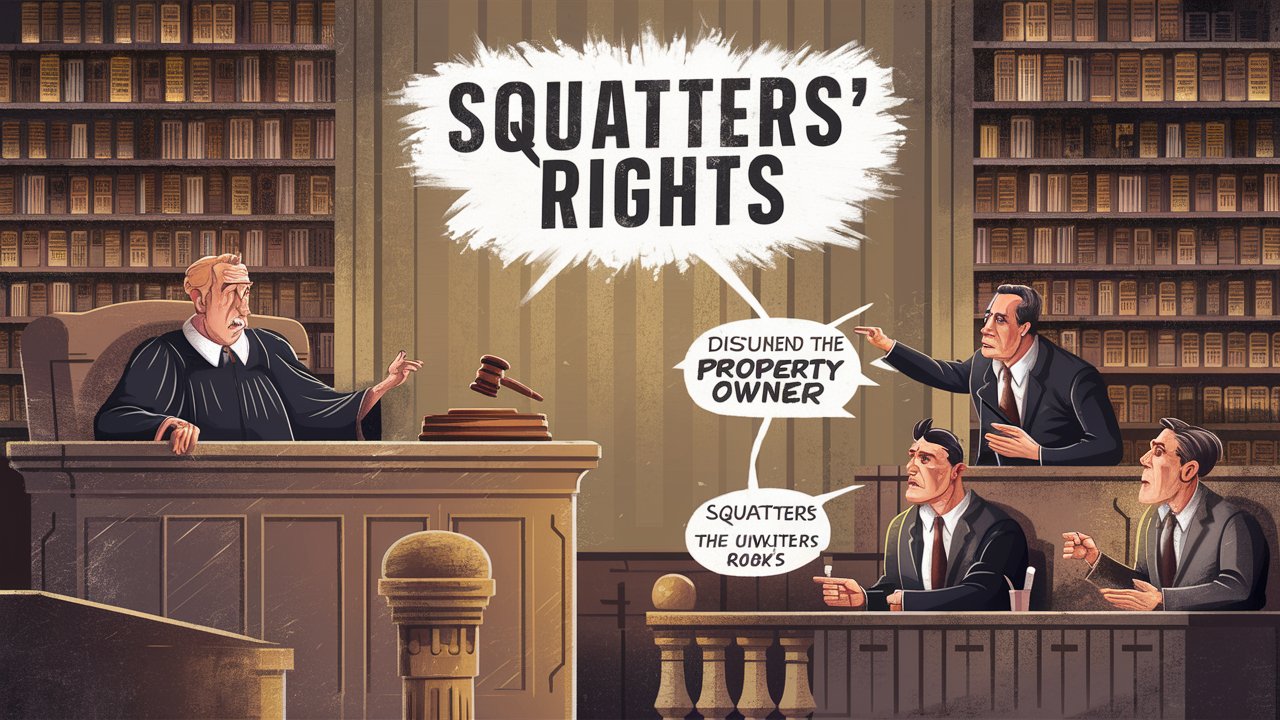 Topic Cluster Planning – Boost Topical Authority Like a Pro!
Topic Cluster Planning – Boost Topical Authority Like a Pro!
Understanding the Legal Framework for Squatters' Rights in Property Disputes
Written by Lawchef legal services » Updated on: June 17th, 2025


Squatters' rights, often referred to as adverse possession, involve the legal principles that allow a person to claim ownership of land under certain conditions. While this concept can be controversial and complex, it is an established part of property law in many jurisdictions. This article delves into the legal framework for squatters' rights, explaining the conditions under which these rights can be acquired, the legal implications for property owners, and the steps both squatters and property owners can take in property disputes.
What Are Squatters' Rights?
Squatters' rights refer to the ability of an individual to claim ownership of property they do not own, usually after occupying it without the owner's permission for a specific period. This legal principle is known as adverse possession.
Key Legal Requirements for Adverse Possession
To successfully claim adverse possession, the squatter must meet several strict criteria, which can vary by jurisdiction but generally include:
Continuous and Uninterrupted Possession
Duration: The squatter must occupy the property continuously for a statutory period, often ranging from 5 to 30 years, depending on the jurisdiction.
Uninterrupted Use: The occupation must be continuous without significant interruption by the true owner.
Actual and Open Possession
Physical Presence: The squatter must physically occupy the property, using it in a manner consistent with ownership.
Visible to Public: The occupation must be open and notorious, meaning it is visible and obvious to anyone, including the property owner.
Exclusive Possession
Sole Use: The squatter must possess the property exclusively, not sharing possession with others, including the owner.
Hostile and Adverse Possession
Without Permission: The occupation must be without the owner’s permission. If the owner has granted permission, adverse possession cannot be claimed.
Claim of Right: The squatter must treat the property as their own, demonstrating an intention to claim ownership.
Legal Implications for Property Owners
Property owners should be aware of the legal implications of squatters' rights and take proactive measures to protect their property:
Regular Inspections
Monitor Property: Regularly inspect and monitor any unused or vacant properties to ensure they are not being occupied without permission.
Posting Notices
No Trespassing Signs: Clearly post "No Trespassing" signs to deter squatters and establish that any occupation is against the owner's will.
Fencing and Security
Secure Boundaries: Use fencing, locks, and security systems to prevent unauthorized access to the property.
Legal Actions to Prevent Adverse Possession
If a property owner discovers a squatter on their land, they can take several legal actions to prevent adverse possession:
Eviction Proceedings
Legal Eviction: Initiate eviction proceedings to remove the squatter legally. This typically involves serving notice and filing a lawsuit if the squatter refuses to leave.
Notice to Quit
Demand to Vacate: Serve a "Notice to Quit" to the squatter, formally demanding that they vacate the property within a specified period.
Police Involvement
Law Enforcement: In cases of trespassing, involving law enforcement to remove the squatter can be an effective measure.
Squatters' Rights: Legal Pathways and Considerations
For squatters seeking to claim adverse possession, understanding the legal pathways and considerations is crucial:
Filing a Claim
Legal Filing: Squatters must file a legal claim for adverse possession in court, presenting evidence that they meet all the statutory requirements.
Documentation
Proof of Occupation: Gather and present documentation such as photographs, witness testimonies, and records that demonstrate continuous and open occupation of the property.
Legal Defenses Against Adverse Possession Claims
Property owners can employ several legal defenses against adverse possession claims:
Permission
Granted Permission: Prove that the squatter had permission to occupy the property, negating the "hostile" requirement of adverse possession.
Interruption
Disruption of Possession: Show evidence that the occupation was interrupted, thereby breaking the continuous possession requirement.
Legal Ownership Actions
Asserting Rights: Regularly assert ownership rights through property inspections, leasing, or other actions that demonstrate the owner's control over the property.
Conclusion
Understanding the legal framework for squatters' rights is essential for both property owners and squatters. Adverse possession laws are designed to balance the interests of property owners with those of individuals who occupy land over long periods. By knowing the legal requirements and implications, property owners can take proactive steps to protect their property, while squatters can understand the legal pathways available to them. Proper legal advice and intervention are often necessary to navigate the complexities of adverse possession and property disputes effectively.
Note: IndiBlogHub features both user-submitted and editorial content. We do not verify third-party contributions. Read our Disclaimer and Privacy Policyfor details.
Copyright © 2019-2025 IndiBlogHub.com. All rights reserved. Hosted on DigitalOcean for fast, reliable performance.
















